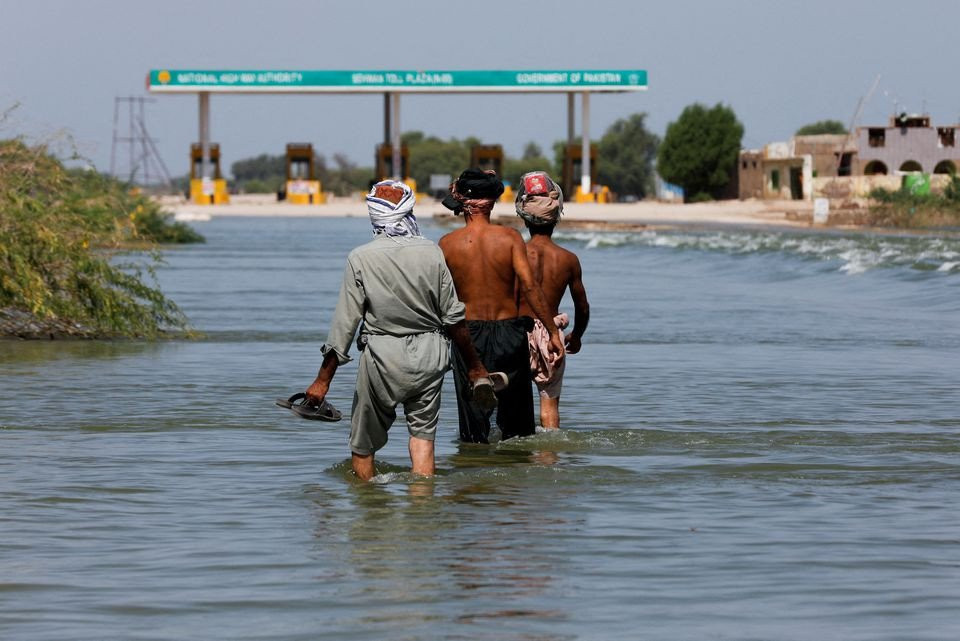
The government on Tuesday approved 10 projects, including seven for reconstruction in the flood-damaged areas at nearly $1.2 billion cost, amid serious legal and administrative challenges that also led to deferment of two important flood schemes.
The Executive Committee of the National Economic Council (Ecnec) took up 10 projects for approval, which had been placed before the forum without legally mandated technical and financial appraisers by the Planning Commission.
These reviews are required under the Public Finance Management Act of 2019, also a brainchild of a multilateral agency to ensure prudent development spending.
The critical work, which is essential for prudent cost and effectiveness of the schemes, could not be done due to a prolonged pen-down strike by the Economist and Technical Services groups in protest of discrimination in award of 150% executive allowance.
Ecnec, headed by Finance Minister Ishaq Dar, approved eight schemes worth $1.9 billion or Rs410 billion. These include seven flood-related projects having a total cost of $1.2 billion. The government will take $1.2 billion loan from the World Bank and the Asian Development Bank for these schemes.
However, Ecnec had to defer the final approval of two World Bank-funded projects – $1 billion worth Flood Response Emergency Housing project ($500 million WB loan) and $255 million Sindh Integrated Health and Population project due to incomplete paperwork, also a result of the strike.
Also read: Govt shuts down agency formed to tackle floods
The finance ministry called the anti-riot police having batons in their hands to clear the way for the departure of Dar to the PM Office where he was scheduled to chair the Ecnec meeting.
However, the officers did not leave the place and Dar had to use an alternate door to leave the Q Block. The finance minister also used another vehicle to travel to the PM Office, instead of the Cabinet Division’s SUV.
Tariq Bajwa, the special assistant to the PM on finance, then used Dar’s official vehicle after briefly talking to the peaceful demonstrators.
Bajwa offered to arrange a meeting between Dar and the demonstrators – the second such offer. A day earlier, when the representatives of the officers went to meet Dar, his staff did not arrange the meeting.
The officers of the Economist, Technical and Information groups are demanding true implementation of the federal cabinet’s decision to give 150% executive allowance to all Grade 17 to 22 officers of the Pak Secretariat. However, the Ministry of Finance issued a tailor-made notification in violation of the federal cabinet’s decision that excluded these groups from the benefit.
The planning ministry did not respond to the questions whether the working papers were tabled in Ecnec without legally mandated technical appraisers, required under an act of parliament.
The ministry did not reply whether these approvals were in violation of sections 14 and 16 of the Public Finance Management Act.
The government plans to take $377 million loans from the ADB and $1.6 billion from the World Bank. But due to the decision to defer the two schemes, the WB loan amount would come down to $850 million.
These projects are located in Sindh, Punjab and Balochstan provinces. The Post-Disaster Needs Assessment report has estimated that out of the total $16.3 billion financing needs, a sum of $7.9 billion is required for Sindh alone.
An official handout issued by the finance ministry stated that Ecnec approved Rehabilitation and Reconstruction of N-5 from Moro to Ranipur (318km) – 404 (NBC/SBC) and 32x Damaged Bridges under ADB Flood Emergency Loan, at the total cost of Rs36.2 billion.
The government will take a $150 million loan from the ADB for the project.
Ecnec approved Emergency Flood Assistance Project (EFAP) – On Farm Water Management Component, at the total cost of Rs3.8 billion or $17.4 million. It also approved Sindh Flood Emergency Rehabilitation Project – SFERP at the total cost of Rs48.3 billion, to be fully funded by the World Bank.
The SFERP was approved at a total cost of Rs66 billion, including $30 million loan for restoration of roads, water supplies, rehabilitation of damaged drainage system, improvement of food security and sustainable livelihood and strengthening of institutional residence in various districts of Sindh.
Ecnec approved Emergency Flood Assistance Project at a total cost of Rs15 billion or $68.2 million. The ADB will give $60 million loan.
Ecnec also approved Emergency Flood Assistance Project- Reconstruction and Rehabilitation of Flood-affected Irrigation Infrastructure in Balochistan at a total cost of Rs12.5 billion or $57 million.
The Sindh Water and Agriculture Transformation (SWAT) Project located in over 23 districts of Sindh at a total cost of Rs70.5 billion was also approved.
Ecnec considered revised project for the construction of Authmuqam- Sharda –Kel –Taobat road section at Rs90 billion. Ecnec approved Improving Workforce Readiness Project in Punjab at a total cost of Rs24 billion.
Ecnec approved a project on Strengthening Social Protection Delivery System in Sindh at a total cost of Rs48.3 billion.






1730793476-0/bella-(1)1730793476-0-165x106.webp)



1730789969-0/Untitled-design-(98)1730789969-0-270x192.webp)

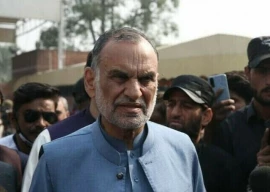
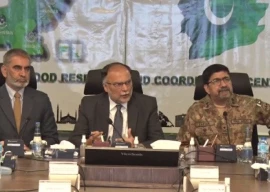
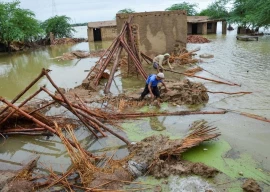
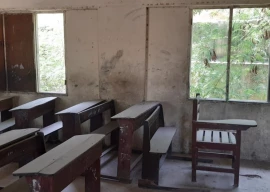




1730706072-0/Copy-of-Untitled-(2)1730706072-0-270x192.webp)
COMMENTS
Comments are moderated and generally will be posted if they are on-topic and not abusive.
For more information, please see our Comments FAQ